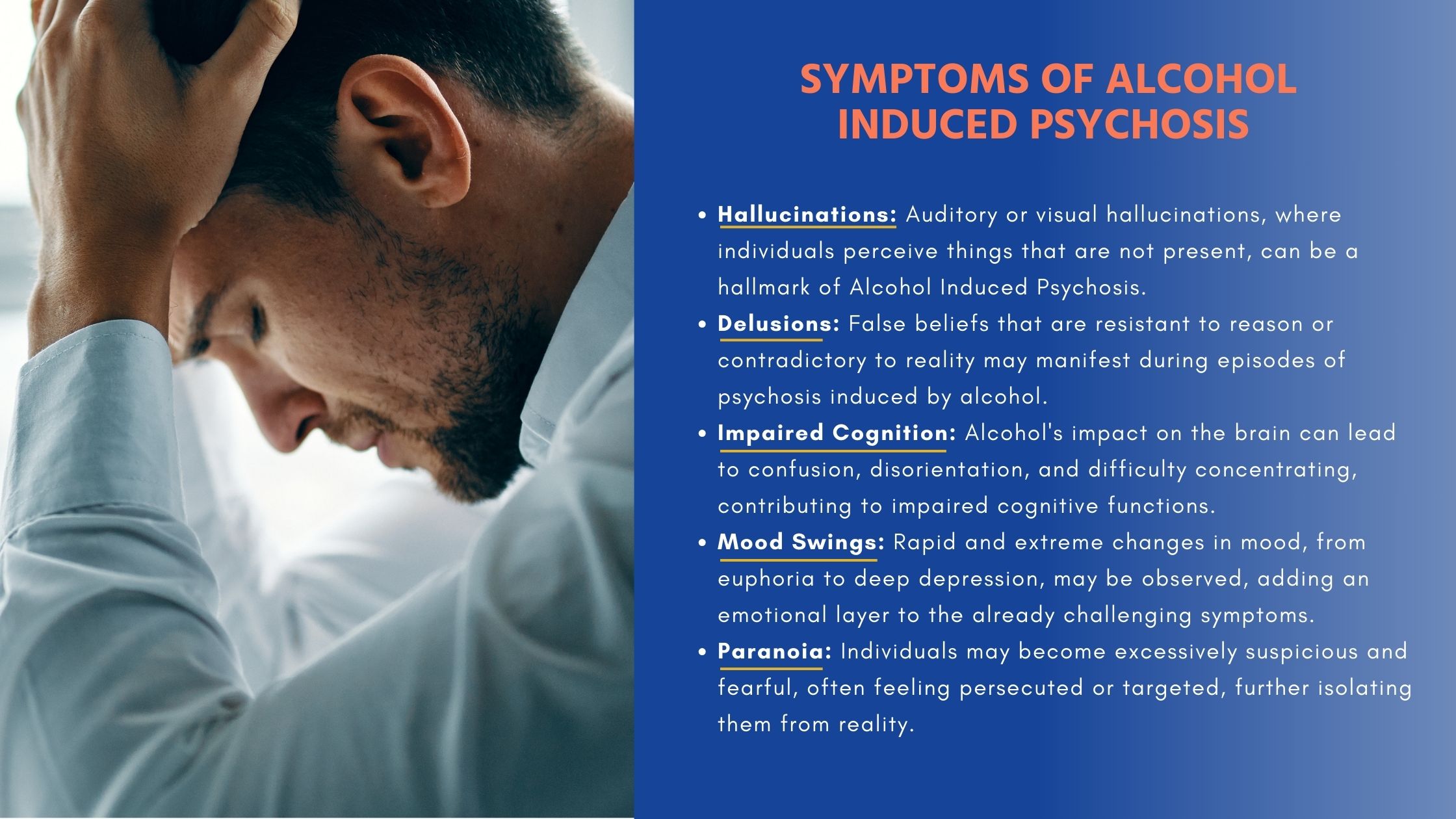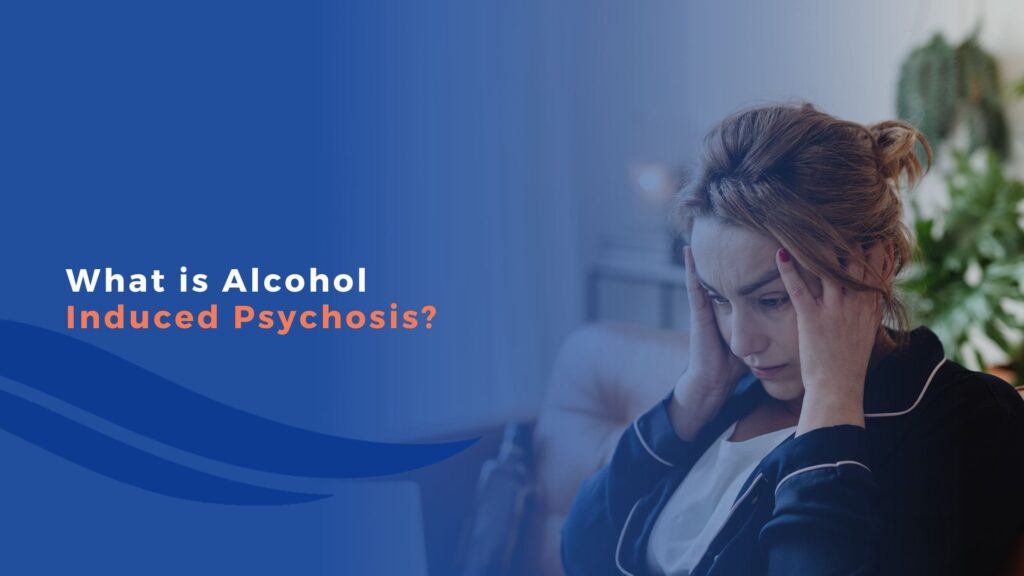Alcohol is widely consumed across the globe, with many individuals enjoying it in moderation. However, excessive alcohol consumption can lead to serious health consequences, one of which is Alcohol Induced Psychosis. In this article, we will discuss what Alcohol Induced Psychosis is, its causes, symptoms, and potential paths to recovery.
What is Alcohol Induced Psychosis?
At its core, Alcohol Induced Psychosis is a manifestation of psychotic symptoms triggered by the excessive intake of alcohol. Psychosis itself entails a mental state where an individual experiences a detachment from reality, often accompanied by hallucinations, delusions, and impaired cognitive functions. When alcohol becomes the catalyst for these symptoms, it gives rise to what is known as Alcohol Induced Psychosis.
Causes of Alcohol Induced Psychosis
1. Excessive Alcohol Consumption:
The human brain can only handle a limited amount of alcohol at any given time. Consuming large quantities in a short span overwhelms the brain, paving the way for psychotic symptoms. This is particularly evident in instances of binge drinking.
2. Alcohol Withdrawal:
Abruptly stopping alcohol intake after prolonged heavy use can induce withdrawal symptoms, including psychosis. This underscores the importance of a gradual and supervised approach when deciding to quit alcohol.
3. Individual Vulnerability:
Not everyone who consumes alcohol will experience Alcohol Induced Psychosis. Factors such as underlying mental health conditions or genetic predisposition can render some individuals more vulnerable to this condition.
Symptoms of Alcohol Induced Psychosis
1. Hallucinations:
Auditory or visual hallucinations, where individuals perceive things that are not present, can be a hallmark of Alcohol Induced Psychosis.
2. Delusions:
False beliefs that are resistant to reason or contradictory to reality may manifest during episodes of psychosis induced by alcohol.
3. Impaired Cognition:
Alcohol’s impact on the brain can lead to confusion, disorientation, and difficulty concentrating, contributing to impaired cognitive functions.
4. Mood Swings:
Rapid and extreme changes in mood, from euphoria to deep depression, may be observed, adding an emotional layer to the already challenging symptoms.
5. Paranoia:
Individuals may become excessively suspicious and fearful, often feeling persecuted or targeted, further isolating them from reality.

Diagnosing Alcohol Induced Psychosis
The diagnosis of Alcohol Induced Psychosis involves a comprehensive assessment by a healthcare professional. This includes reviewing the individual’s medical history, conducting a physical examination, and sometimes ordering laboratory tests to rule out other potential causes. Timely medical attention is crucial for those experiencing symptoms.
Treatment Options
1. Medication:
Healthcare professionals may prescribe antipsychotic medications to manage psychotic symptoms. It’s imperative for individuals to take these medications under their guidance and supervision.
2. Therapy:
Psychological interventions, such as cognitive-behavioral therapy (CBT) and counseling, can help individuals address underlying issues contributing to alcohol misuse and psychosis.
3. Inpatient Treatment:
In severe cases, especially when there’s a risk of harm to oneself or others, inpatient treatment programs may be necessary. These programs provide a structured environment for detoxification and psychiatric care.
Recovery and Prevention
1. Seek Professional Help:
If you or someone you know is grappling with alcohol-induced psychosis, reaching out to a healthcare professional or a reputable rehabilitation center is crucial. Professional guidance is instrumental in navigating the path to recovery.
2. Address Underlying Issues:
Identifying and addressing the root causes of alcohol misuse, including any co-occurring mental health issues, is essential for sustained recovery. This holistic approach is often a key factor in preventing relapse.
3. Support Systems:
Building a strong support system is integral to the recovery process. Friends, family, and support groups provide understanding, encouragement, and a sense of community that can be instrumental in overcoming challenges.
DreamLife Recovery: Your Partner in Overcoming Addiction
DreamLife Recovery offers support and guidance to individuals facing the challenges of alcohol-induced psychosis or struggling with alcohol addiction, as well as their loved ones.
Contact us today to take the first step towards a healthier, happier life free from the grips of alcohol addiction. Remember, recovery is possible, and you don’t have to face this journey alone. Your brighter tomorrow begins with a decision today. Call (855) 384-5808 today!







